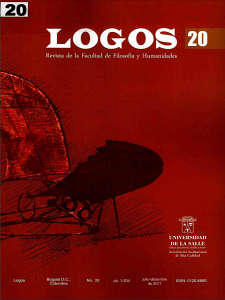Abstract
This reflection, simultaneously nourished with a mass media research and the emotional construction carried out at La Salle University from 2009-2010, explores what the most relevant changes are in the reading conditions in the contemporary subject (digital native) from the immersion in the new information and communication technologies (NICT) in most dimensions of his life. This is in order to assess up to what point the hypothesis of the appearance of socio-semiotic structures of textual elaboration and new strategies in the architecture of cultural meanings can be maintained, and what consequences it would have on the school praxis. The result of this effort leads to communicative games of open, dynamic, participative and rational/emotional character, typical of the collective actions achieved by young people in the interactive channels on Web 2.0 (Facebook, Twitter, MySpace, Google+, Second life, blogs, wikis, etc.), and which demonstrates an illustration where the meaning plots are the effect of a creative, autonomous and democratic work, ruled by the presence of the iconic, indexical and a parallel analogical rationality.Downloads
Download data is not yet available.



